Imcivree
$3,623.00 Original price was: $3,623.00.$3,223.00Current price is: $3,223.00.
600 in stock
Imcivree reviews/setmelanotide side effects/setmelanotide tablet/setmelanotide injection/imcivree side effects/imcivree weight loss/imcivree vs wegovy vs ozempic vs saxenda vs mounjaro vs Xenical/imcivree fda approval
| Quantity | Per unit | Price |
|---|---|---|
| 1 milliliter | $3,223.40 | $3,223.40 |
What is IMCIVREE?
IMCIVREE is a prescription medicine used in adults and children 6 years of age and older with obesity due to:
- The genetic conditions pro-opiomelanocortin (POMC), proprotein convertase subtilisin/kexin type 1 (PCSK1), or leptin receptor (LEPR) deficiency, to help them lose weight and keep the weight off
- Bardet-Biedl syndrome (BBS) to help them lose weight and keep the weight off
Your healthcare provider should order an FDA-approved test to confirm POMC, PCSK1, or LEPR deficiency before you start using IMCIVREE.
IMCIVREE is not for use in people with the following conditions because it may not work:
- Obesity due to suspected POMC, PCSK1, or LEPR deficiency not confirmed by genetic testing or with benign or likely benign genetic testing results
- Other types of obesity not related to POMC, PCSK1, or LEPR deficiency, or BBS, including obesity associated with other genetic conditions and general obesity
It is not known if IMCIVREE is safe and effective in children under 6 years of age.
Do not use IMCIVREE if you have had a serious allergic reaction to it or any of its ingredients. Serious allergic reactions, including anaphylaxis, can happen.
Before you use IMCIVREE, tell your healthcare provider about all your medical conditions, including if you:
- Have or have had areas of darkened skin, including skin discoloration (hyperpigmentation)
- Have or have had depression, or suicidal thoughts or behavior
- Are pregnant or planning to become pregnant. Losing weight while pregnant may harm your unborn baby. Your healthcare provider may stop your treatment with IMCIVREE if you become pregnant. Tell your healthcare provider if you become pregnant or think you might be pregnant during treatment with IMCIVREE
- Are breastfeeding or plan to breastfeed. It is not known if IMCIVREE passes into your breast milk. You should not breastfeed during treatment with IMCIVREE
Tell your healthcare provider about all the medicines you take, including prescription and over-the-counter medicines, vitamins, and herbal supplements.
See the detailed Instructions for Use that come with your IMCIVREE to learn how to prepare and inject IMCIVREE, and how to properly throw away (dispose of) used syringes and needles.
What are the possible side effects of IMCIVREE?
IMCIVREE may cause serious side effects, including:
- Male and female sexual function problems. IMCIVREE can cause an erection that happens without any sexual activity in males (spontaneous penile erection) and unwanted sexual reactions (changes in sexual arousal that happen without any sexual activity) in females. If you have an erection lasting longer than 4 hours, get emergency medical help right away
- Depression and suicidal thoughts or actions. You or a caregiver should call your healthcare provider right away if you have any new or worsening symptoms of depression, suicidal thoughts or behaviors, or any unusual changes in mood or behavior
- Serious allergic reactions. Stop taking IMCIVREE and get medical help right away if you have any symptoms of a serious allergic reaction including: swelling of your face, lips, tongue, or throat; problems breathing or swallowing; severe rash or itching; fainting or feeling dizzy; rapid heartbeat
- Increased skin pigmentation and darkening of skin lesions (moles or nevi) you already have. These changes happen because of how IMCIVREE works in the body and will go away when you stop using IMCIVREE. You should have a full body skin exam before starting and during treatment with IMCIVREE to check for skin changes
- Benzyl alcohol toxicity. Benzyl alcohol is a preservative in IMCIVREE. Benzyl alcohol can cause serious side effects, including death, in premature and low-birth weight infants who have received medicines that contain benzyl alcohol. IMCIVREE should not be used in premature and low-birth weight infants
The most common side effects of IMCIVREE include darkening of the skin, injection site reactions, nausea, headache, diarrhea, stomach pain, vomiting, depression, and an erection that happens without any sexual activity in males.
How much weight can I expect to lose?
Each individual is different, and results can vary from person to person. In clinical studies of IMCIVREE:
- 80% of people (8 out of 10) with obesity due to POMC or PCSK1 deficiency lost at least 10% of their body weight at 1 year; people with obesity due to POMC or PCSK1 deficiency had a 23.1% average reduction in weight from baseline after 1 year
- 46% of people (5 out of 11) with obesity due to LEPR deficiency lost at least 10% of their body weight at 1 year; people with obesity due to LEPR deficiency had a 9.7% average reduction in weight from baseline after 1 year
When treatment was stopped, weight increased. When the withdrawal period ended and treatment was restarted, weight loss continued. You can find more information on IMCIVREE clinical studies here. To determine what may be reasonable for you to expect from treatment, speak to your healthcare provider.
How long should I expect to take IMCIVREE?
IMCIVREE must be taken daily to be effective. In clinical trials, when IMCIVREE was stopped, individuals experienced weight gain. When the withdrawal period ended and treatment was restarted, weight loss continued. Speak to your healthcare provider to determine the best treatment plan for you.
How should I use Imcivree?
- See the detailed Instructions for Use that comes with your prescription to learn how to prepare and inject Imcivree.
- Imcivree is given as an injection under your skin (subcutaneous) by you or a caregiver.
- A healthcare provider should show you or your caregiver how to prepare and inject your dose of Imcivree before injecting for the first time. Do not try to inject Imcivree unless you have been trained by a healthcare provider.
- Use Imcivree exactly as prescribed by your healthcare provider.
- Your healthcare provider may tell you to stop using Imcivree if you have not lost a certain amount of weight after 12 to 16 weeks of treatment.
- If you have BBS, hour healthcare provider may tell you to stop using Imcivree if you have not lost a certain amount of weight after 1 year of treatment.
- Imcivree should be injected 1 time each day when you first wake up. Imcivree can be given with or without food.
- If you miss a dose, inject your next dose at the regularly scheduled time the next day.
Dosing information
Usual Adult Dose for Obesity:
Initial dose: 2 mg subcutaneously once a day for 2 weeks
-If tolerated and additional weight loss is desired: Increase to 3 mg subcutaneously once a day
-If not tolerated: Reduce to 1 mg subcutaneously once a day; if additional weight loss is desired, titrate to 2 mg subcutaneously once a day
Maintenance dose: 1 to 3 mg per day
Maximum dose: 3 mg per day


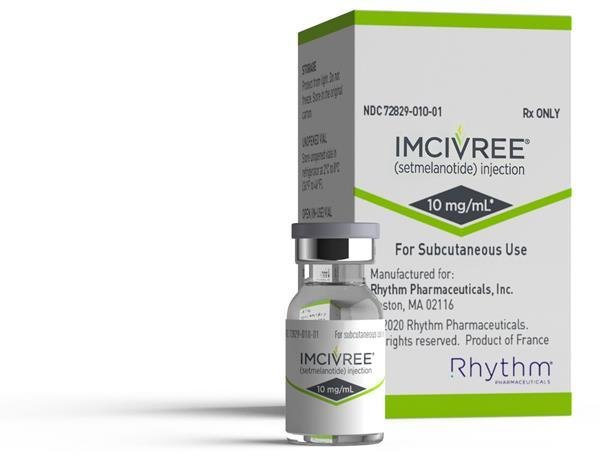


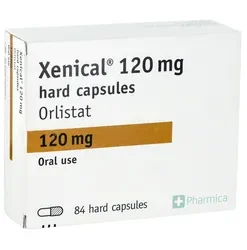


![Falcanna - Strawberry Cereal Milk [.6g] - Sativa](https://bestmedstoreusa.com/wp-content/uploads/2024/03/IMG_8851-247x296.jpeg)


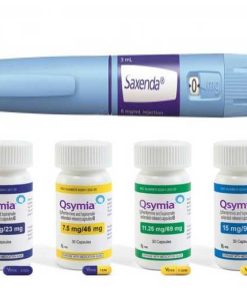
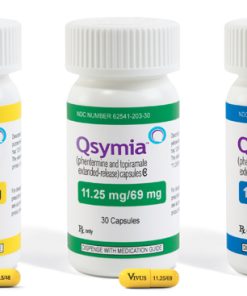

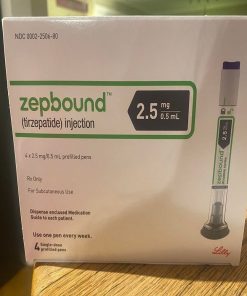
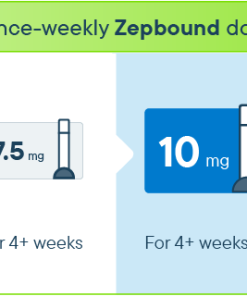
Reviews
There are no reviews yet.